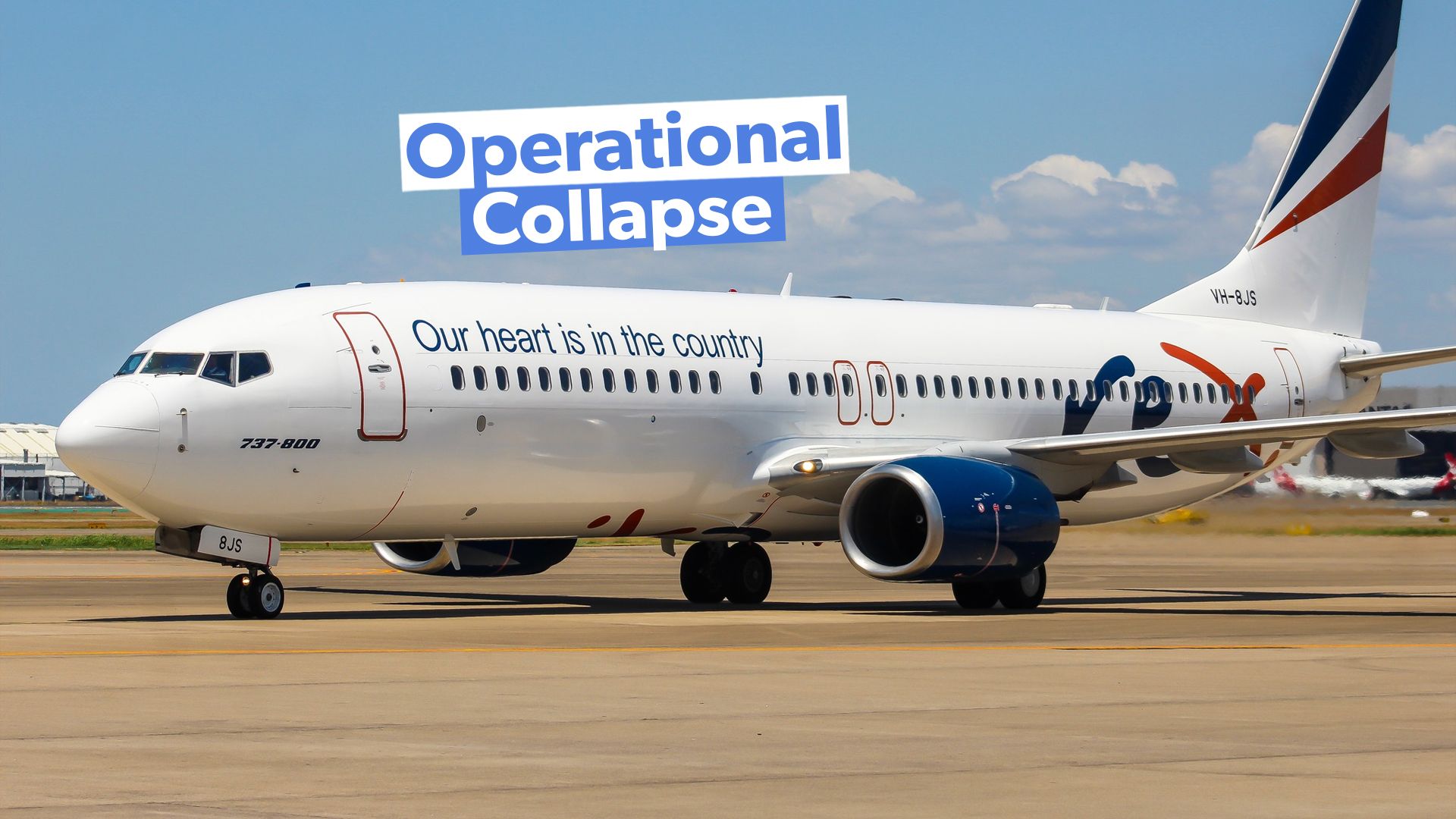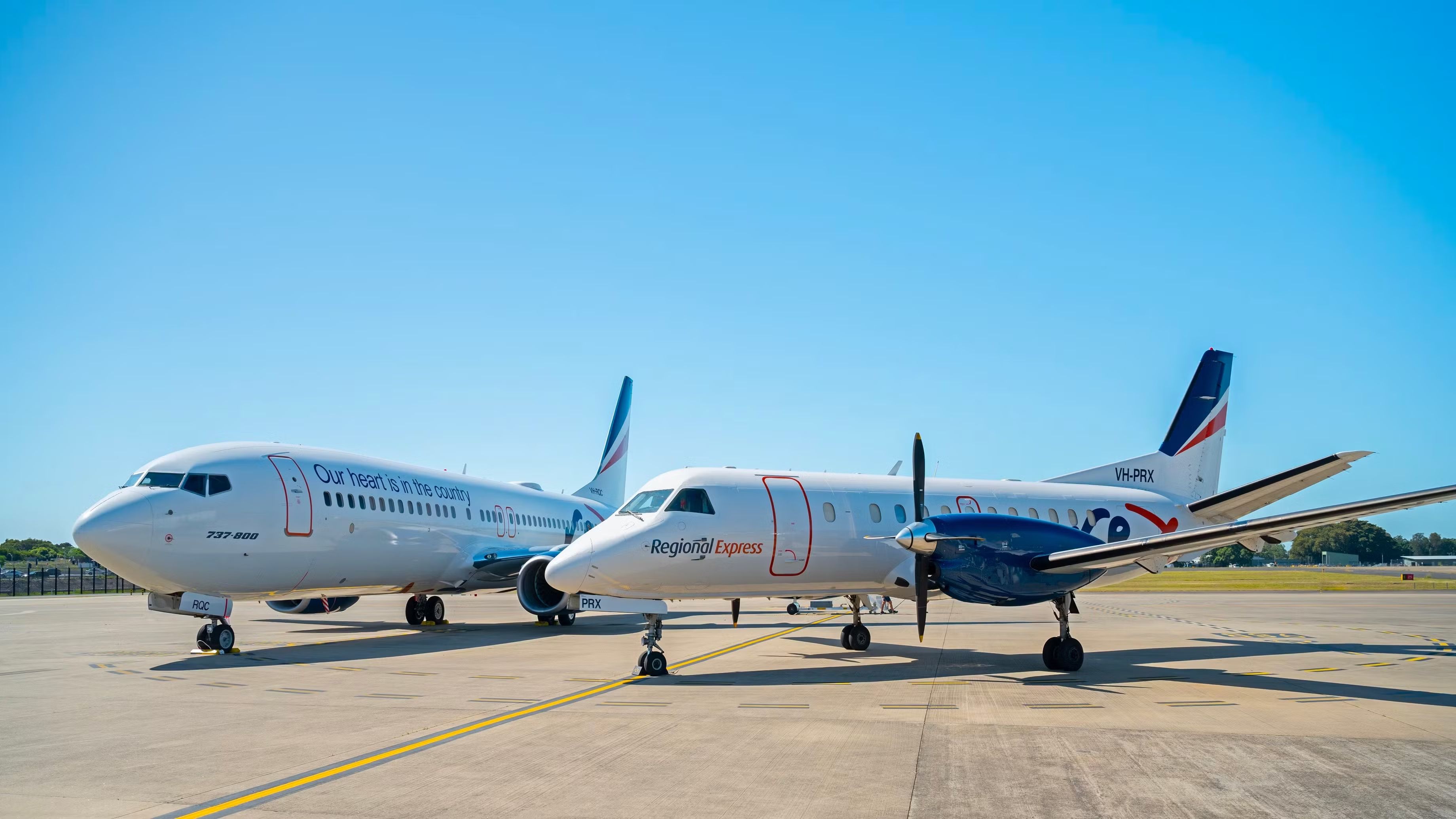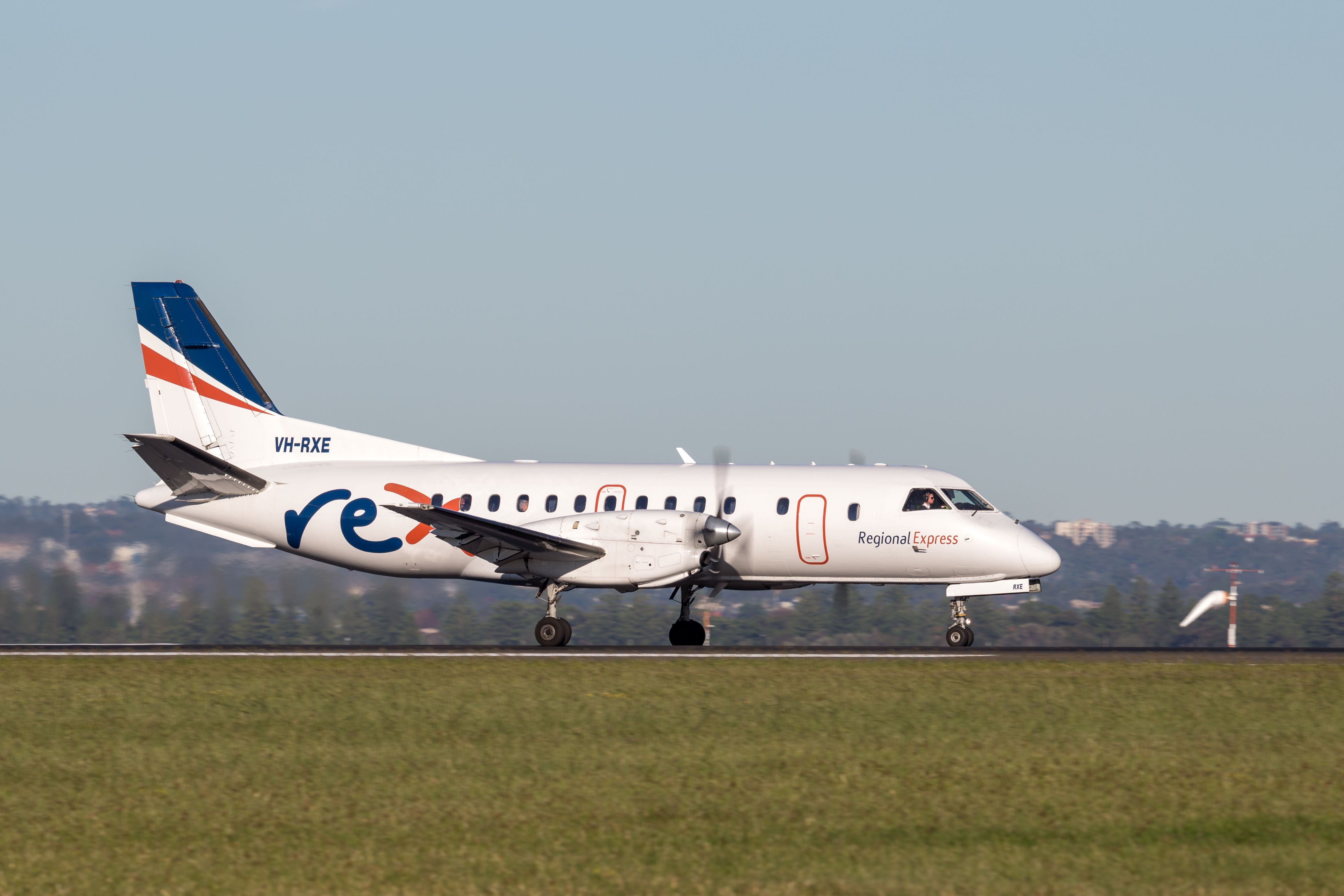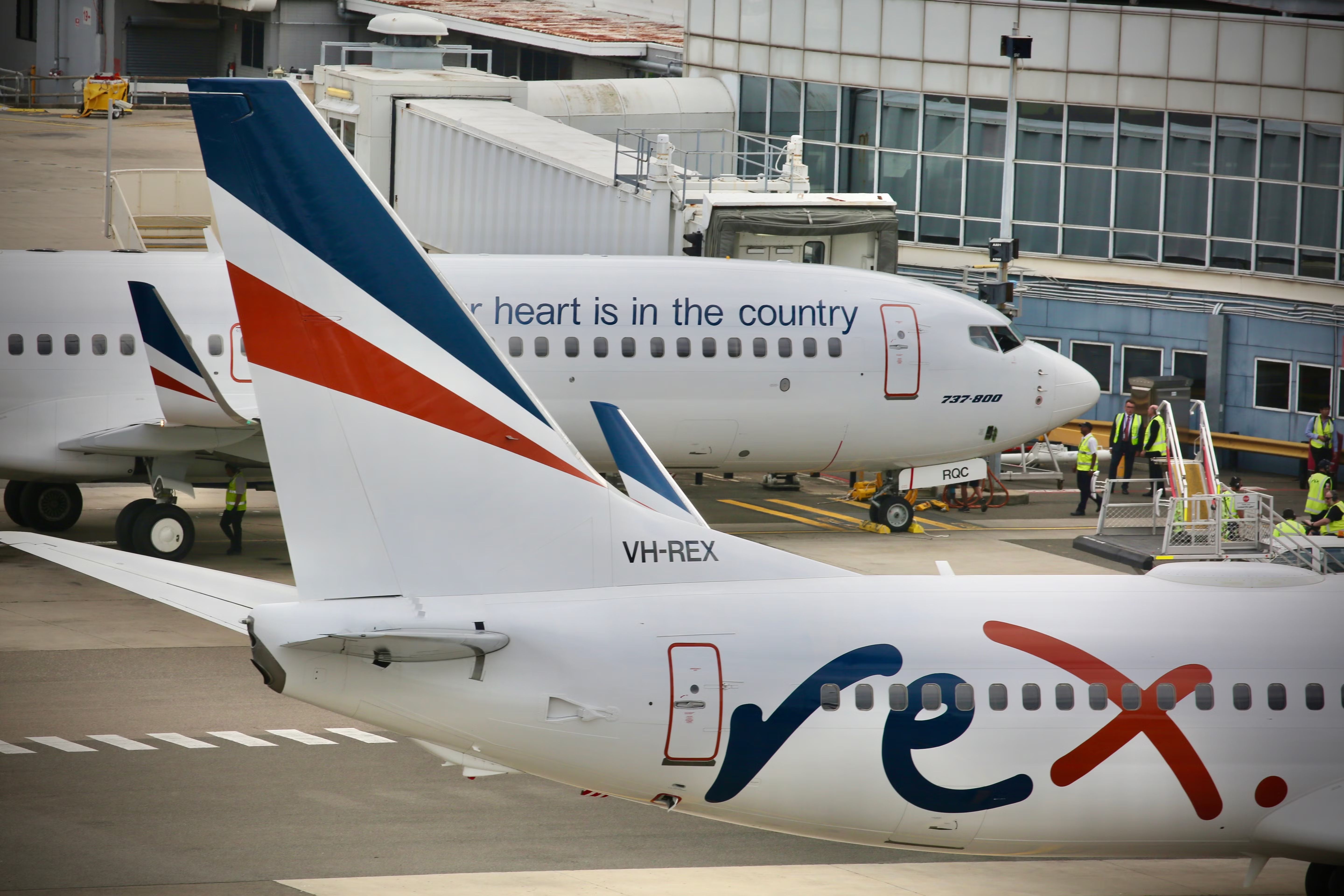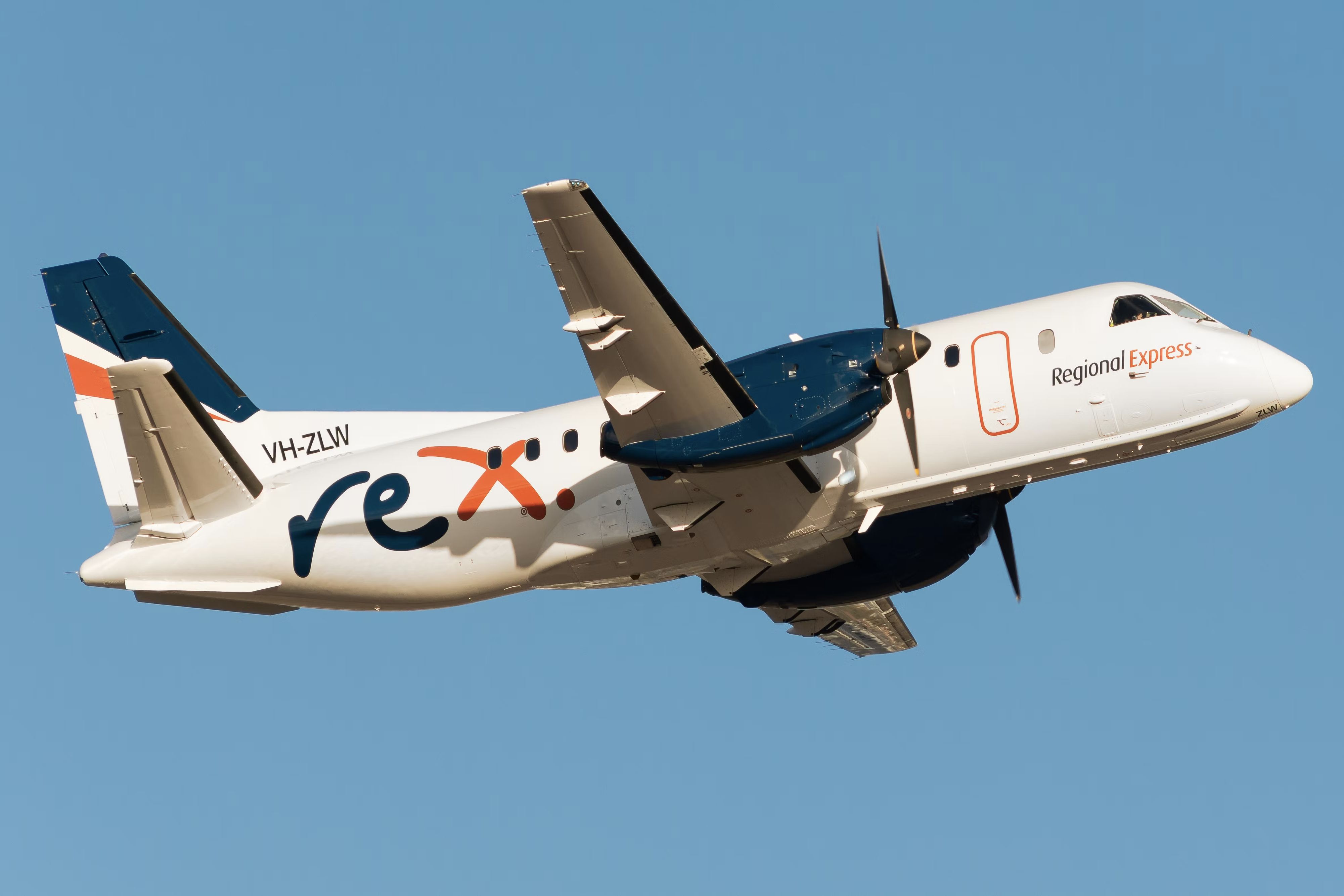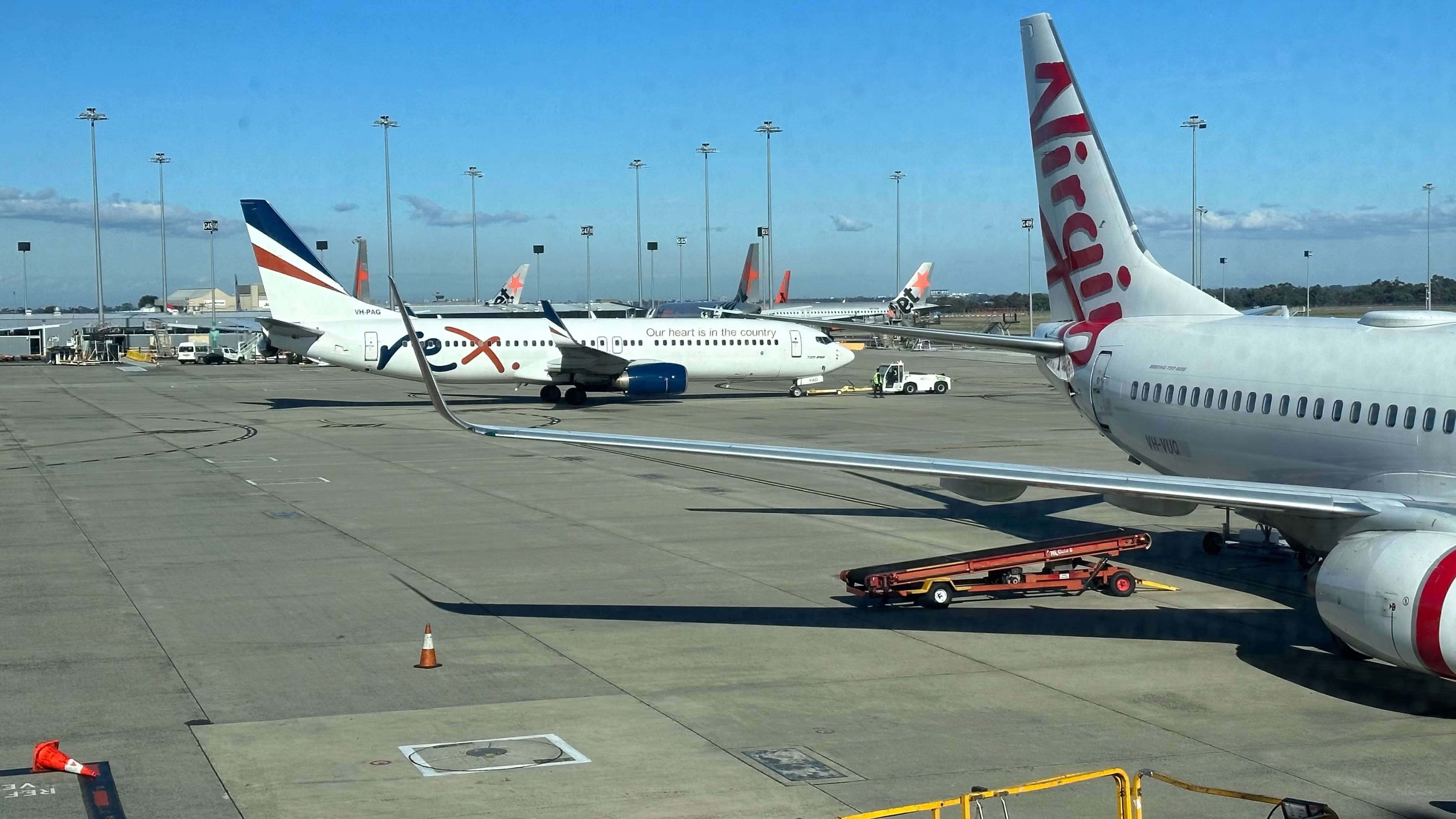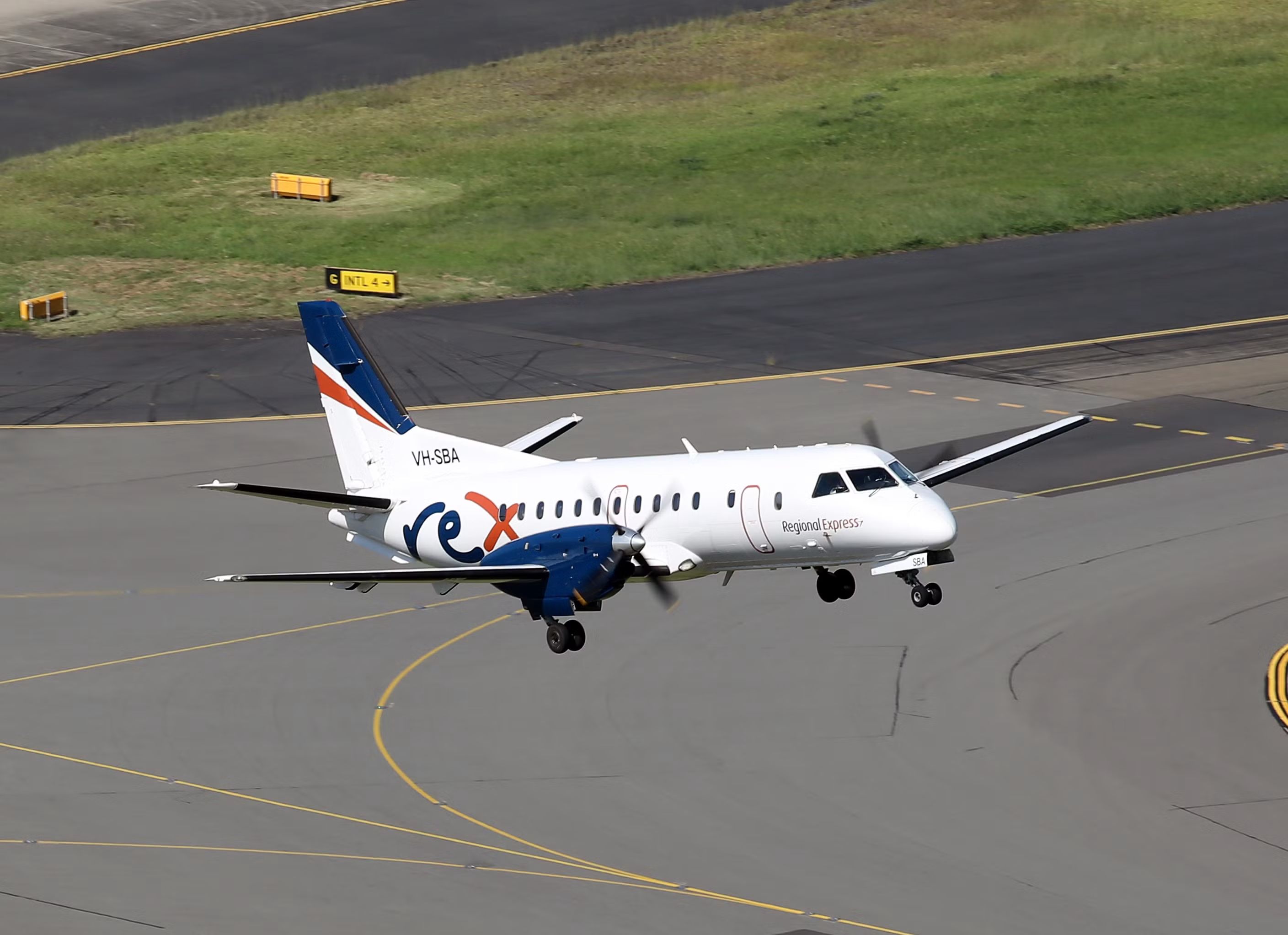An Australian regional airline based in Mascot, a city in New South Wales, Rex Airlines today operates scheduled regional services across multiple regions of the nation using small turboprop-powered aircraft. The airline today stands as a shell of what it once was, as the carrier operated an extensive network of jet services between several major Australian cities between 2021 and 2024. In July 2024, the airline collapsed and entered voluntary administration.
The airline, which serves as the largest and most important subsidiary of Regional Express Holdings, is mostly owned by Singaporean businessman Lim Kim Hai and Hong Kong-based investment management firm PAG, a company that routinely ranks as one of Asia’s top ten largest private equity giants. It suffices to say that Rex had the backing and support of key financial players, those that bankrolled its ultimately unsuccessful expansion effort in the years following the pandemic.
Photo: Rex
On July 30th, 2024, the airline elected to take down its booking platform for all domestic jet services, and it was placed under voluntary administration, appointing multinational accounting firm Ernst & Young as a joint administrator. Rex’s stock was at the same time delisted from the Australian Securities Exchange, with mounting fears that the airline would collapse entirely, with regional flights, the long-time backbone of the company, potentially on the chopping block next.
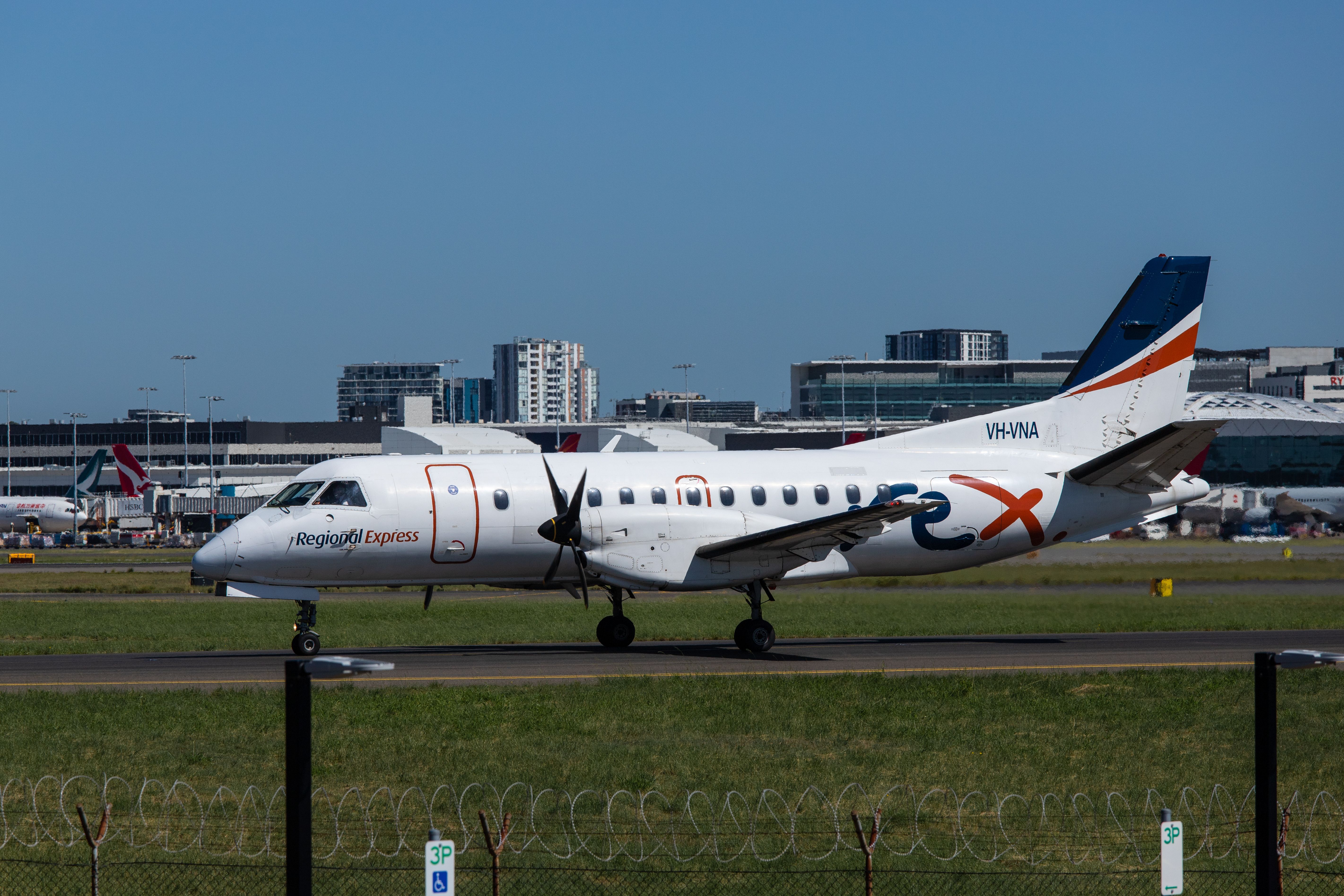
Related
ATSB Report On Rex Saab 340 Haywire Evacuation: So Much Went Wrong
The report highlighted that despite repeated instructions not to do so, some passengers still evacuated the Saab 340 with their personal items.
Rex’s operations have scaled down significantly, and the company is in a problematic financial predicament
Today, Rex has returned to being a purely regional operator, and it currently ranks as Australia’s second-largest regional airline by number of destinations, with 45 across the nation. QantasLink, the regional subsidiary of flag carrier Qantas, is the only larger regional airline in the country, with flights to 55 different destinations. Rex’s regional operations today are funded in part by its financial parent, PAG Asia, but also in part by the Queensland government.
Photo: Ryan Fletcher | Shutterstock
By the time September 2024 came around, after the company had been under administration for two months, it had become clear that nobody was interested in buying Rex and turning it around, leading to fears that the company might have to completely cease operations. The airline was, however, able to secure extension funding from the Federal Court of Australia to attempt to extend the carrier’s sale process, according to Australian news outlet news.com.au.
The company’s funding was again extended in November 2024, and it began selling off subsidiaries, such as the sale of Pel-Air to the Toll Group, an Australian freight and logistics conglomerate. Rex today is very close to a complete operational collapse, with the only hope of breathing new life into the troubled airline being the potential acquisition by a new airline. In this article, we will take a deeper look at how Rex went from being one of Australia’s most prominent airlines to a small regional airline fighting for survival.
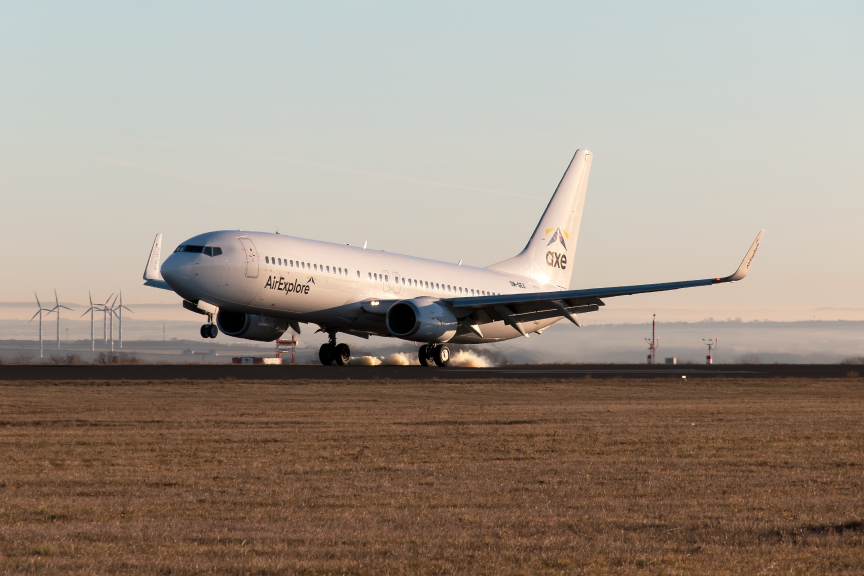
Related
New Operator In The US: AirExplore Gets DOT Approval
This news comes more than a year after Avia Solutions Group, the world’s largest ACMI operator, acquired the Slovak airline.
Company history and buildup to collapse in 2024
Regional Express Holdings Limited, the company behind Rex, was founded in 2001 following the collapse of Ansett Airlines. The company was launched by a group of Singaporean and Australian private investors, which merged the assets of two existing carriers, Kendell Airlines and Hazelton Airlines, to create this new carrier.
Photo: Rex
The company was officially incorporated on February 12th, 2002, under the operational name Australiawide Airlines. The carrier would eventually go on to become a public company traded on the Australian Stock Exchange when it floated 30.43% of its shares to the public in 2005, around which time it rebranded as Regional Express Holdings. During this time, it also expanded by acquiring Pel-Air, a Sydney-based charter carrier. Regional Express Holdings also owns Rex Investment Holdings, a subsidiary that manages the Australian Aero Propeller Maintenance facility in Wagga Wagga and the Australian Airline Pilot Academies in Ballarat.
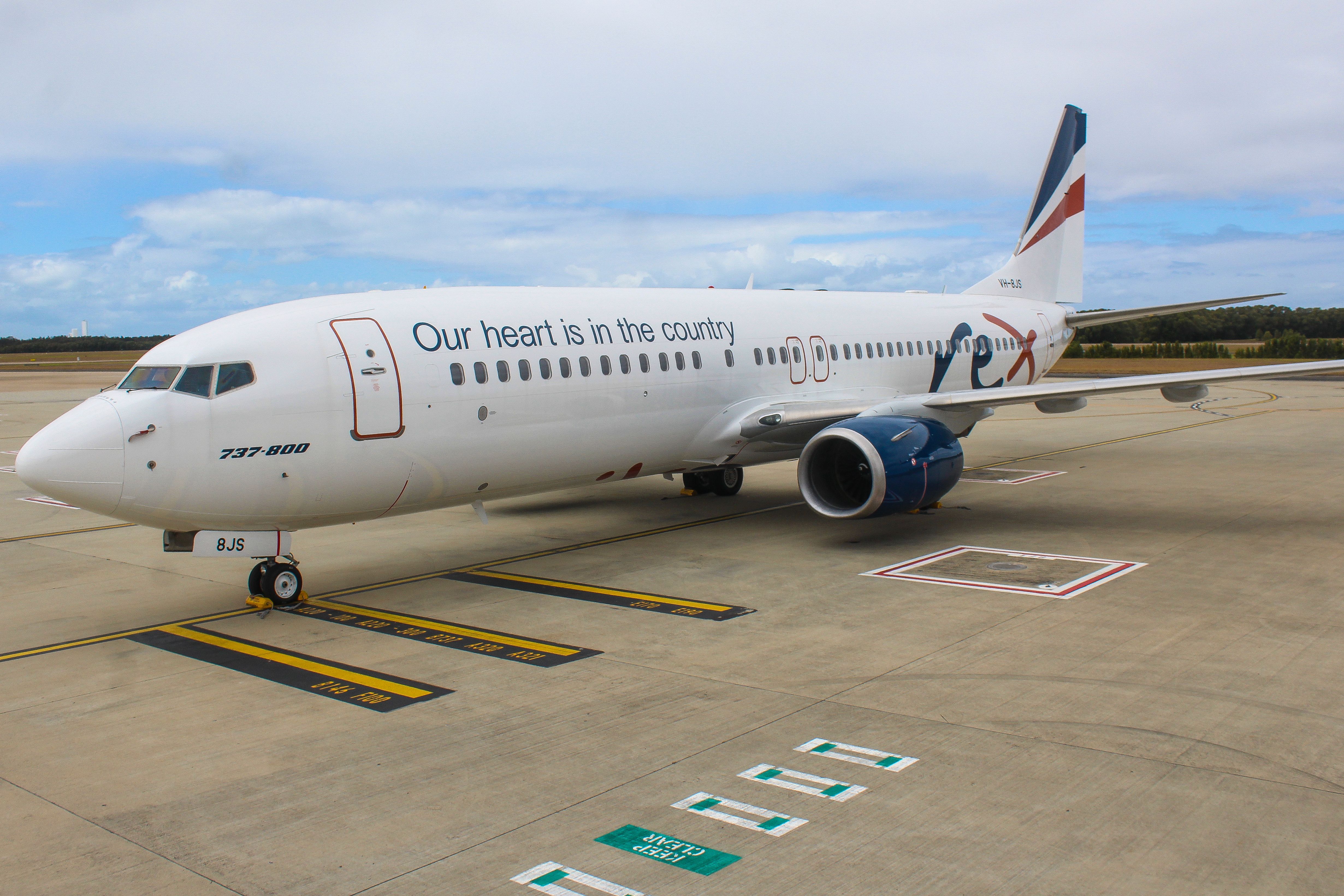
Related
Rex Ready To Launch Perth Boeing 737 And Embraer E190 Flights
City by city around Australia, Rex has steadily developed a national domestic network that will soon include nonstop transcontinental flights.
Regional Express Holdings’ primary asset was and remains the regional airline Rex, but a separate subsidiary was established back in July 2020 to help support the airline’s drastic domestic expansion efforts with Boeing 737 flights. Amid rapid industry restructuring during the pandemic, Regional Express believed that it could be in the right position to launch a major growth initiative in the Australian market.
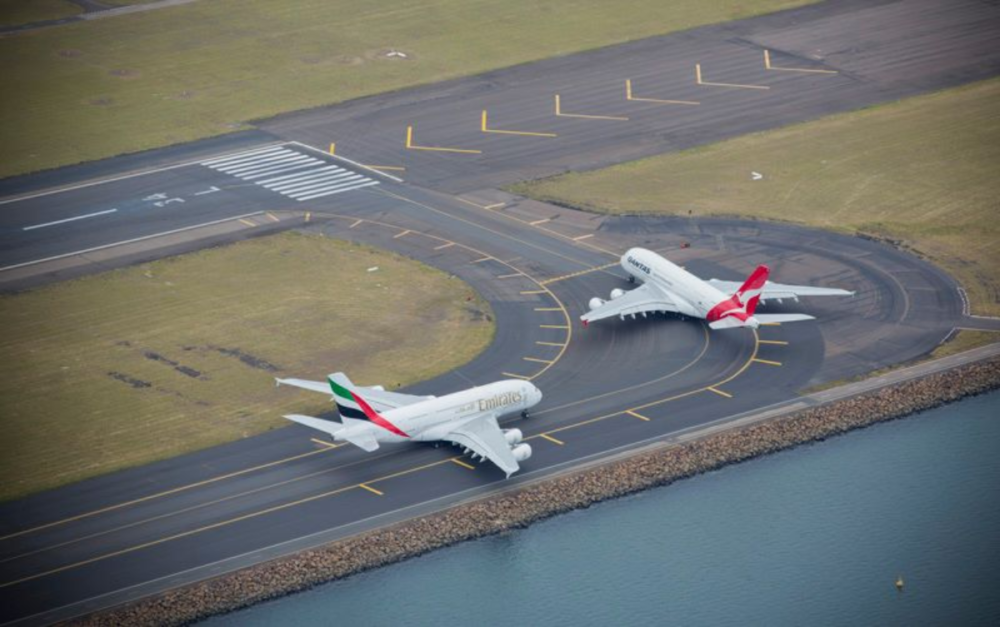
Sydney Kingsford Smith Airport
- IATA/ICAO Code
-
SYD/YSSY
- CEO
-
Geoff Culbert
- Terminals
-
Terminal 1 |
Terminal 2 |
Terminal 3
With eyes toward the future and a diverse portfolio of scheduled airlines, industry-adjacent firms, and charter carriers, Regional Express’ decision to attempt to expand into the Australian market may not have seemed all that surprising on paper. Nonetheless, the carrier’s non-regional domestic subsidiary would never achieve the success many had expected and the decision to launch Boeing 737 flights between major domestic hubs turned out to be a risky gamble.
Get all the latest aviation news for Australia
from Simple Flying!
2024 entry into voluntary administration and subsequent fallout
By the early months of 2024, it had become clear that Rex’s flights between major Australian cities were not achieving the financial results the company was hoping for, and it was beginning to turn heavy losses on these routes. By 2024, the company elected to request a trading halt, suspend ticket sales, and ultimately enter voluntary administration.
Photo: Steve Worner | Shutterstock
As a result of this, the airline exited the Canberra market and also canceled flights between major cities with its full-sized commercial aircraft, although it continued to operate shorter-haul services to smaller markets using regional aircraft. Virgin Australia took over the leases on three of the airline’s Boeing 737 aircraft, and it operated flights for affected customers.
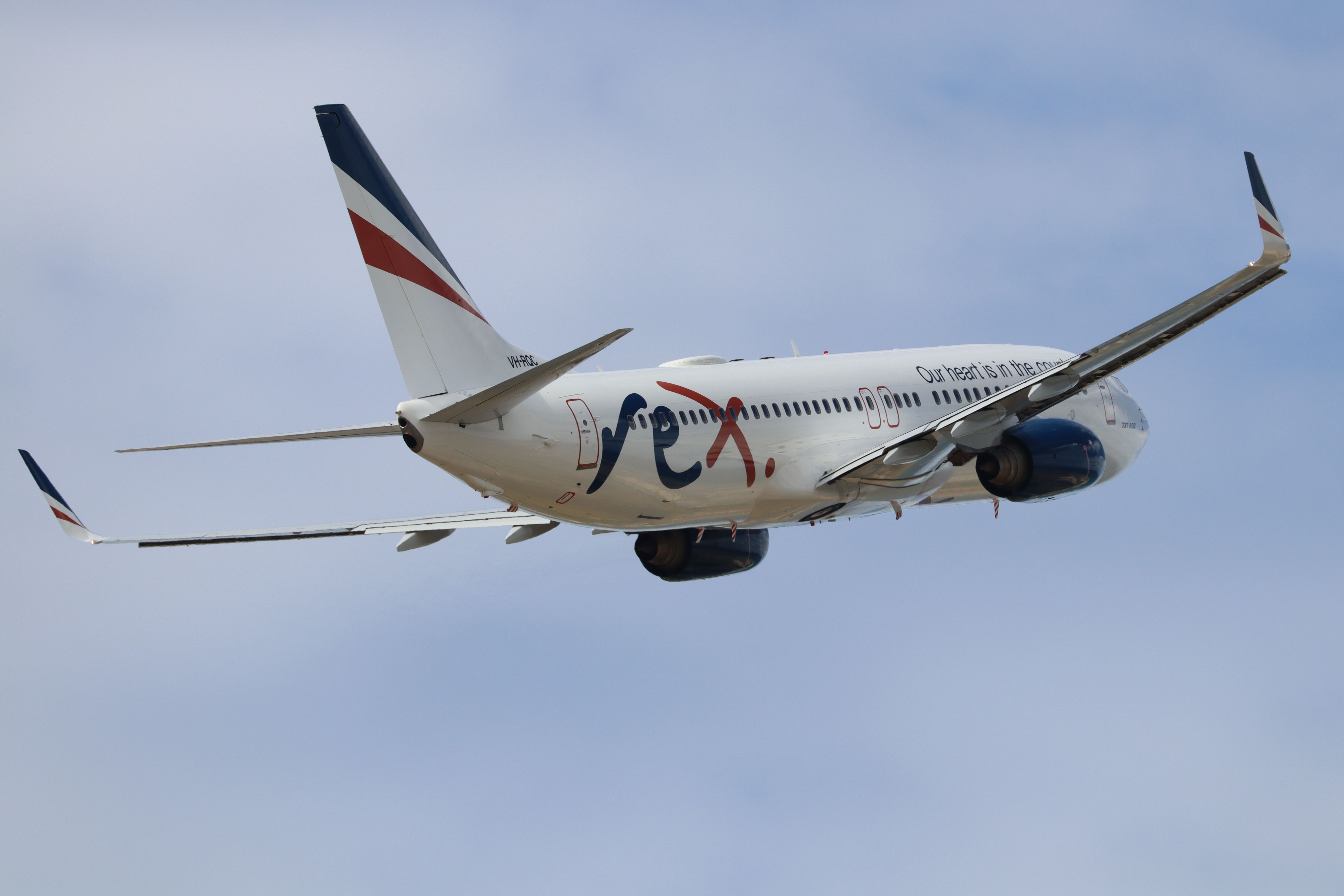
Related
Flight Review: Business Class On Rex’s Boeing 737
Rex is already Australia’s most reliable airline, and business class passengers can also expect the best cabin in the category for half the price.
When the airline formally entered administration on July 31st, it was facing a whopping $500 million in debt, which was collectively owed to over 4,800 creditors. The airline primarily noted that pilot shortages and supply chain issues were key factors in the airline’s collapse, which ultimately resulted in about 600 Australians losing their jobs. The airline was also experiencing low load factors during this period, another factor that likely inhibited the financial success of its domestic non-regional flights.
Many politicians in Australia came to Rex’s support during its period of sustained financial difficulties, eventually extending the airline’s administration deadline to June 2025. It has become rather clear that the Australian government is looking to find a buyer for Rex, with the hopes that it can keep its valuable network of regional flights active. In a statement made to the BBC following the airline’s entry into voluntary administration, Australian Transport Minister Catharine King had the following words to share:
“We want to make sure that they have a future as part of aviation in this country, and we’re very determined to make sure that happens.”
She went on to note her understanding that this is a time of great uncertainty for those who work at the airline and for those who rely on its convenient and efficient regional flights, which are the only air links for many remote destinations. At the end of the day, if Rex collapses fully, it will simply mean fewer options for passengers, lower competition in the market, and ultimately higher ticket prices. For some, it could also mean the complete elimination of air service, potentially forcing prospective passengers to drive hours to the nearest airport.
Photo: Michael Doran | Simple Flying
So what lessons can we learn from the Rex story?
Ultimately, the collapse of Rex cannot be attributed to any single factor. Nonetheless, the story of its collapse does feed into two interesting existing narratives. For starters, startup airlines in Australia have struggled to break the duopoly between flag carrier Qantas and Virgin Australia, with several notable high-profile collapses, including that of Bonza.
Photo: Rex
Secondly, Rex’s decision to expand its operational offerings drastically directly after the pandemic does raise an eyebrow. The airline industry was experiencing record-low levels of demand, something that did not bode well for an airline in need of high load factors to turn a profit on its ambitious new routes. Furthermore, the increased costs of fuel and aircraft leasing, both of which rose significantly in 2022 when Russia invaded Ukraine, likely also had an impact on the airline’s financial trajectory.

